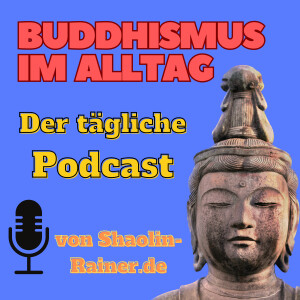
- Podcast Features
-
Monetization
-
Ads Marketplace
Join Ads Marketplace to earn through podcast sponsorships.
-
PodAds
Manage your ads with dynamic ad insertion capability.
-
Apple Podcasts Subscriptions Integration
Monetize with Apple Podcasts Subscriptions via Podbean.
-
Live Streaming
Earn rewards and recurring income from Fan Club membership.
-
Ads Marketplace
- Podbean App
-
Help and Support
-
Help Center
Get the answers and support you need.
-
Podbean Academy
Resources and guides to launch, grow, and monetize podcast.
-
Podbean Blog
Stay updated with the latest podcasting tips and trends.
-
What’s New
Check out our newest and recently released features!
-
Podcasting Smarter
Podcast interviews, best practices, and helpful tips.
-
Help Center
-
Popular Topics
-
How to Start a Podcast
The step-by-step guide to start your own podcast.
-
How to Start a Live Podcast
Create the best live podcast and engage your audience.
-
How to Monetize a Podcast
Tips on making the decision to monetize your podcast.
-
How to Promote Your Podcast
The best ways to get more eyes and ears on your podcast.
-
Podcast Advertising 101
Everything you need to know about podcast advertising.
-
Mobile Podcast Recording Guide
The ultimate guide to recording a podcast on your phone.
-
How to Use Group Recording
Steps to set up and use group recording in the Podbean app.
-
How to Start a Podcast
-
Podcasting
- Podcast Features
-
Monetization
-
Ads Marketplace
Join Ads Marketplace to earn through podcast sponsorships.
-
PodAds
Manage your ads with dynamic ad insertion capability.
-
Apple Podcasts Subscriptions Integration
Monetize with Apple Podcasts Subscriptions via Podbean.
-
Live Streaming
Earn rewards and recurring income from Fan Club membership.
-
Ads Marketplace
- Podbean App
- Advertisers
- Enterprise
- Pricing
-
Resources
-
Help and Support
-
Help Center
Get the answers and support you need.
-
Podbean Academy
Resources and guides to launch, grow, and monetize podcast.
-
Podbean Blog
Stay updated with the latest podcasting tips and trends.
-
What’s New
Check out our newest and recently released features!
-
Podcasting Smarter
Podcast interviews, best practices, and helpful tips.
-
Help Center
-
Popular Topics
-
How to Start a Podcast
The step-by-step guide to start your own podcast.
-
How to Start a Live Podcast
Create the best live podcast and engage your audience.
-
How to Monetize a Podcast
Tips on making the decision to monetize your podcast.
-
How to Promote Your Podcast
The best ways to get more eyes and ears on your podcast.
-
Podcast Advertising 101
Everything you need to know about podcast advertising.
-
Mobile Podcast Recording Guide
The ultimate guide to recording a podcast on your phone.
-
How to Use Group Recording
Steps to set up and use group recording in the Podbean app.
-
How to Start a Podcast
-
Help and Support
- Discover

Buddhismus im Alltag als täglicher Podcast - Mentale Gesundheit - Selbstverwirklichung - Achtsamkeit
Religion & Spirituality:Buddhism

Was ist das?
Das ist eine ganz einfache Frage, oder etwa nicht?
Diese meditative Fragestellung stammt von Hui-Neng (638–713), dem 6. Patriarchen (Nachfolger) des Bodhidharma, der den Chan-(Zen)-Buddhismus einst im Shaolin Tempel China begründete.
Die Komplexität dieser anfänglich mentalen Meditationstechnik ergibt sich aus dem Erreichen des Punktes, ab dem sich die Sprache erschöpft, man „sprachlos“ wirkliches Verständnis erreicht. In China, Korea und Japan wird die Technik der „kritische Satz“ genannt.
Aufgebaut auf Wissen und Verständnis kann beim Meditieren „ERLEUCHTUNG“ erreicht werden, wenn der rationale Verstand abgeschaltet wird. Diese Technik kann (unter anderem) für die Menschen geeignet sein, die unter psychischen Problemen leiden, die vor existenziellen Problemen stehen, oder die ganz einfach ihren „Weltschmerz“ lindern wollen. Sie kann sitzend, stehend oder liegend durchgeführt werden.
Auch die Frage „wer bin ich“ kann am Anfang der Meditation des "kritischen Satzes" stehen.
Es handelt sich dabei schlichtweg um Aufgabenstellungen, die es in der Folge notwenig machen, sich dem wahren eigenen „Ich" zu stellen, sich mit essentiellen Fragen zu beschäftigen. Dies kann für manche Menschen auch bedrohlich wirken, schließlich verbringen die meisten unter uns hauptsächlich damit ihre Zeit, dem eigenen „Ich“ zu entfliehen.
Wie praktiziert man die „kritische Satz-Meditation“?
Man wiederholt die Frage wieder und wieder, nachdenklich, konzentriert, schweigend, neugierig und gefasst, man versucht, die Frage "mit Leben" zu füllen.
Was ist das wirklich, kann ich „dahinter“ sehen?
Wer bin ich wirklich, erkenne ich mein wahres „Ich“?
Copyright: https://shaolin-rainer.de
Bitte laden Dir auch meine App "Buddha-Blog" aus den Stores von Apple und Android.
More Episodes
 2024-10-25
2024-10-25
 2024-10-23
2024-10-23
 2024-10-20
2024-10-20
 2024-10-19
2024-10-19
 2024-10-18
2024-10-18
 2024-10-17
2024-10-17
 2024-10-16
2024-10-16
 2024-10-15
2024-10-15
 2024-10-11
2024-10-11
 2024-10-10
2024-10-10
 2024-10-08
2024-10-08
 2024-10-06
2024-10-06
Create your
podcast in
minutes
- Full-featured podcast site
- Unlimited storage and bandwidth
- Comprehensive podcast stats
- Distribute to Apple Podcasts, Spotify, and more
- Make money with your podcast
It is Free
- Privacy Policy
- Cookie Policy
- Terms of Use
- Consent Preferences
- Copyright © 2015-2025 Podbean.com



